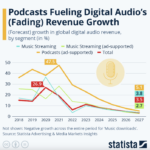 By Claire Herman, Media Operations Lead at The MediaShop
By Claire Herman, Media Operations Lead at The MediaShop
In a matter of months our world has been turned upside down after experiencing a global pandemic infecting over 5.1 million people around the world and resulting in almost 331,000 deaths so far (Worldometer, 21 May 2020). Besides Bill Gates and the screenplay writer of Contagion, who could have predicted this?
In our fast-paced society with instant gratification being the order of the day, asking millions of people to go into self-isolation seems like torture – never before has the freedom to see your friends and family, to exercise or walk your dogs, been raised as such a bone of contention and “irritation” – first world problems. But to many, the harsh reality of their living conditions has made lockdown almost unbearable – restricted access to clean water and sanitation, over-crowded living arrangements, an ever-increasing level of unemployment and a massive shortage of food in many communities, is making it very difficult to keep people in confinement. President Ramaphosa’s announcement on Thursday the 13 th of May that we could possibly move from Level 4 to Level 3 at the end of May (for some regions at least), does give some hope, but at some stage we will need to be set free.
And when that happens, we most certainly won’t be able to “return to normal” – or at least until we have a vaccine or a cure. Some are estimating that a vaccine is still 18 months away. There will also be “degrees of normality” depending on your age and state of health, with older generations and the immunocompromised needing to be extra cautious.
In the meantime, we need to adapt our lifestyles in the long-term as we navigate towards a “new normal”. But the burning question of what exactly this “new normal” will be is on everyone’s lips. For a sobering view on how some countries are entering this new world go to CNN.com’s article “our new normal, in pictures” at https://edition.cnn.com/2020/05/20/world/gallery/new-normal-coronavirus/index.html .
Could our new normal be body sanitisation pods, face mask fashion outlets, clothing bubbles that enforce a two meter distance between people, a ban on all work meetings unless virtual? It could all very well happen, but let’s take a realistic look at what will need to happen when we are ‘set free’.
According to a recent Kantar webinar on Navigating Growth in a COVID-19 World, there are a few key shifts that we will experience, including:
- Contactless love and affection: virtual dinner parties for adults and virtual playdates and birthday parties for kids, with grandparents needing to keep a safe distance from their grandchildren.
- Super-hygiene society: masks may very well be compulsory over the next 18 months, our hands will never be the same again after all the hand-sanitizers and constant washing with soap and water, and we will not be able to shake hands in business meetings or hug our friends hello.
- Insular lives: shopping online and shopping local will become the norm, a rise in the use of in-home media channels (TV and digital) and a renewed focus on the home as a safe sanctuary.
- Technology super highway: technology as an enabler in society to just get things done from working, shopping and socialising to exercising and meditating.
- Renewed respect for essentials: the demand for luxury goods will decline, with a major slowing down of the travel and hospitality industries.
- An era of shared humanity: a renewed focus on giving back to the community and random acts of kindness, together with an increase in support for authentic brands that are helping to uplift society.
The reality is that there will be many restrictions imposed on us that we will need to adapt to quite quickly. Public transport will need to be heavily monitored to avoid over-crowding. Our retail spaces will need to be reimagined with employee and shopper safety at the forefront. Work environments will look to creating more personal space as opposed to having large areas where groups of people can get together for meetings and have breaks, and there will be a rise in shift-based work schedules and flexible working arrangements.
Schools and universities will continue to integrate distance learning platforms in certain instances, which may even resolve funding issues to cut costs and give more people access to education. Sport and music events will need to limit audience numbers, with an increase in virtual broadcasts and online performances, as well as a rise in eSport. Restaurants will have staggered seating with a drop in patron capacity and an increase in online ordering and home deliveries.
And families may just end up spending much more quality time together at home… Our new normal may not be too bad in the end, but what this crisis has done is put a spotlight on the shortfalls of our society and in our country. It is now time to actively change the way we have been living for a better future. We truly are #StrongerTogether
- MRF Unveils Latest MAPS® Data - 20th February 2025
- The BRC announces changes to the board and updates for 2025 - 17th December 2024
- Top 50 DSTV TV programmes – October 2024 - 12th November 2024




